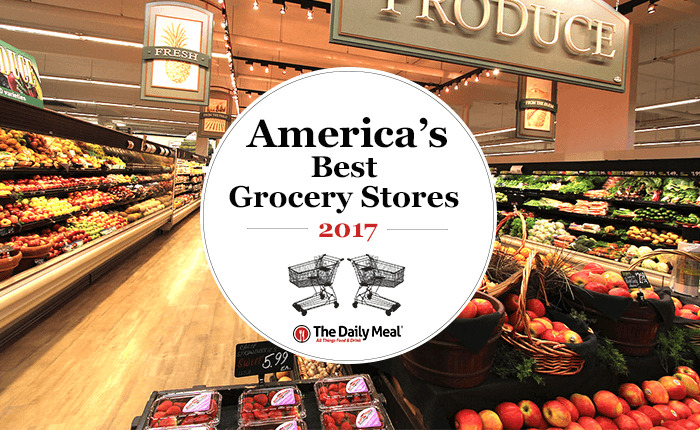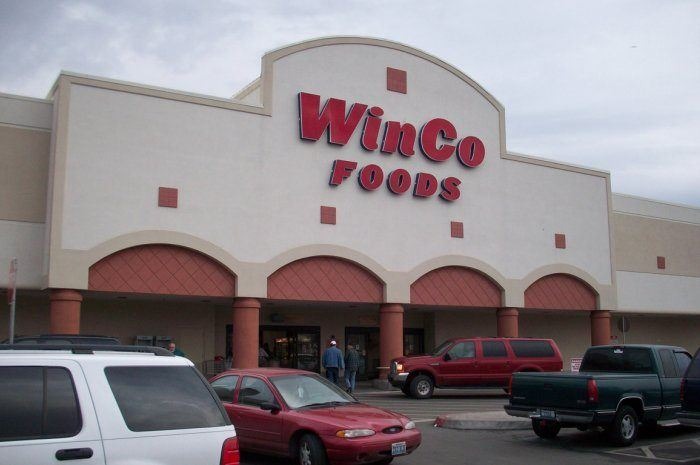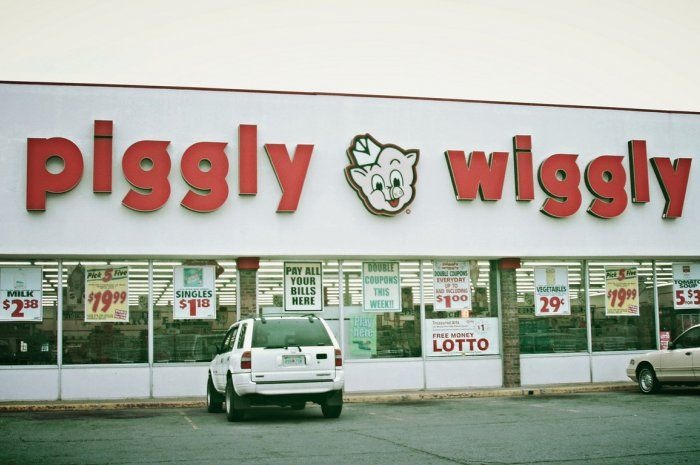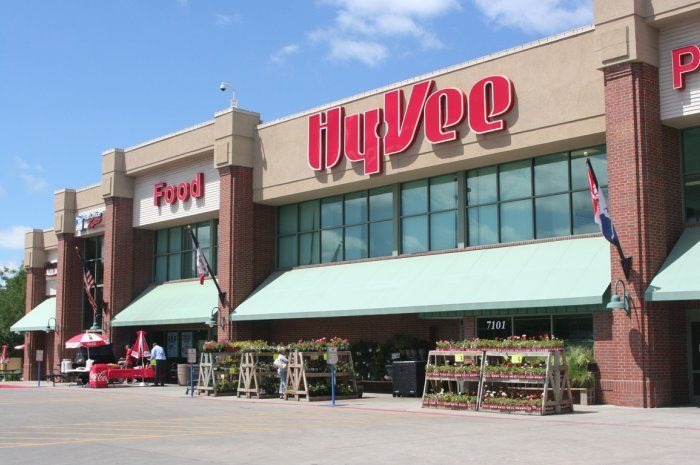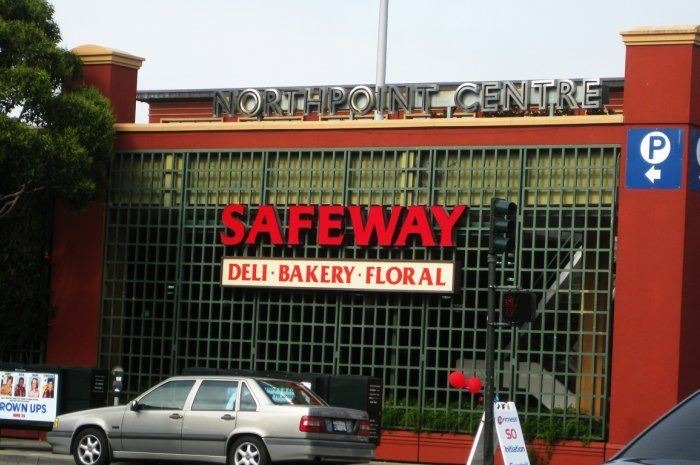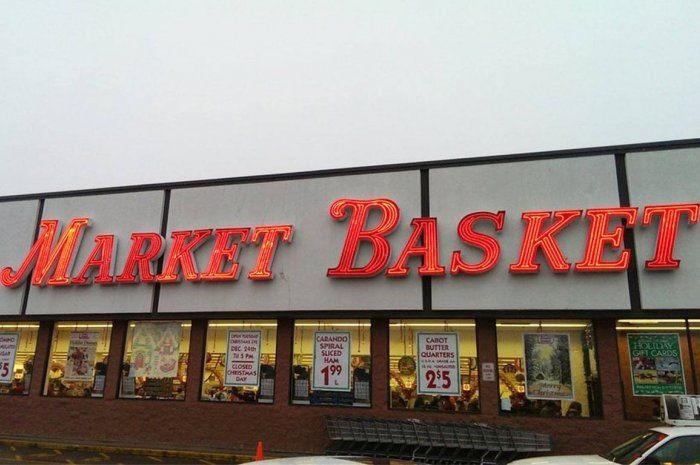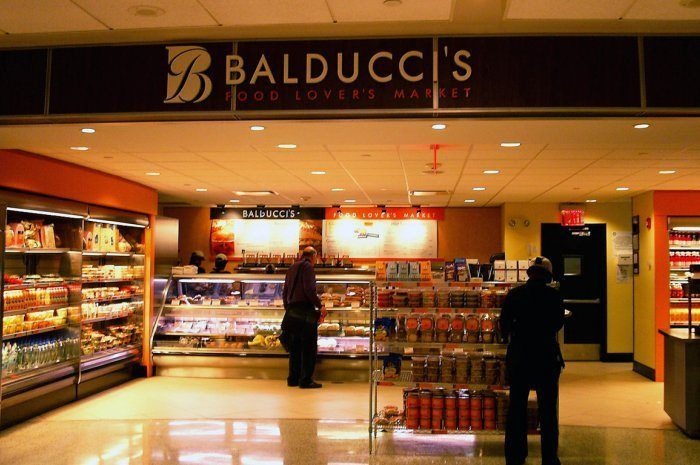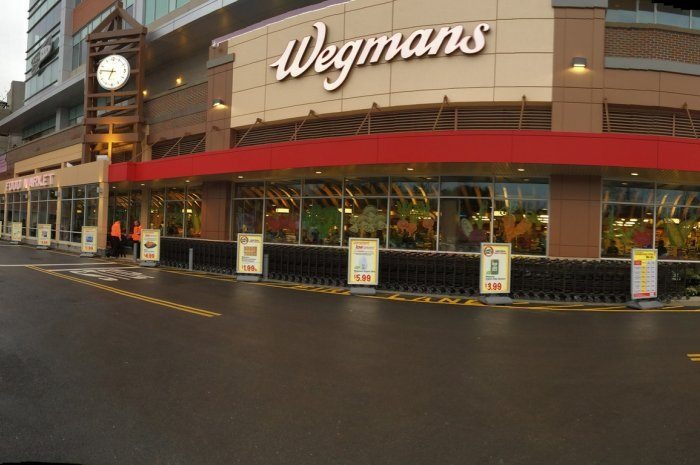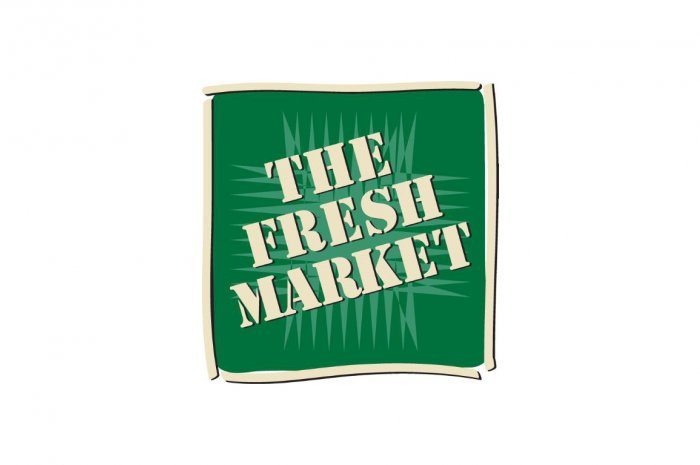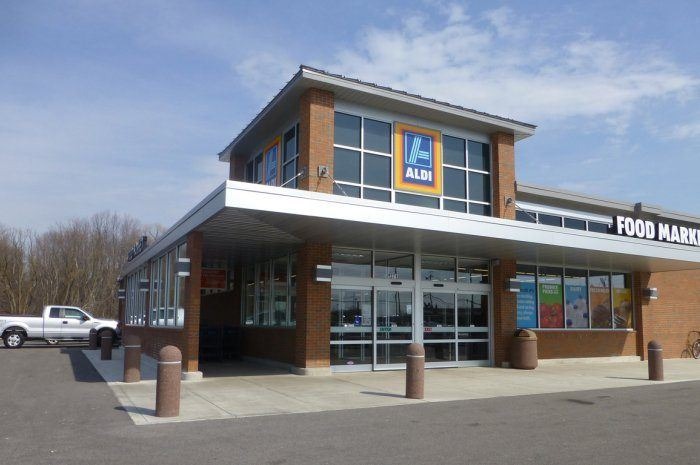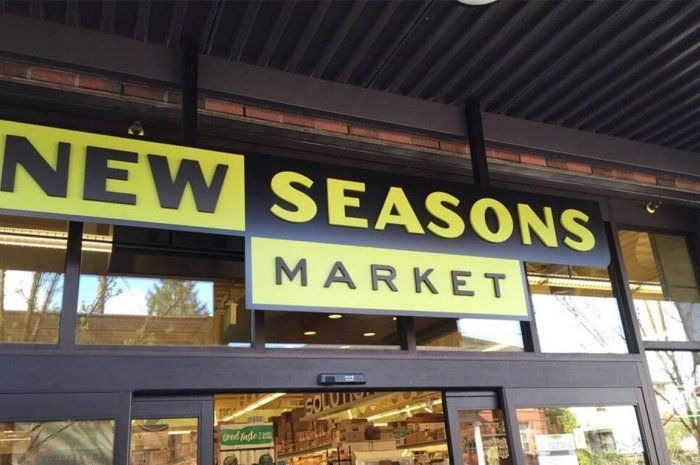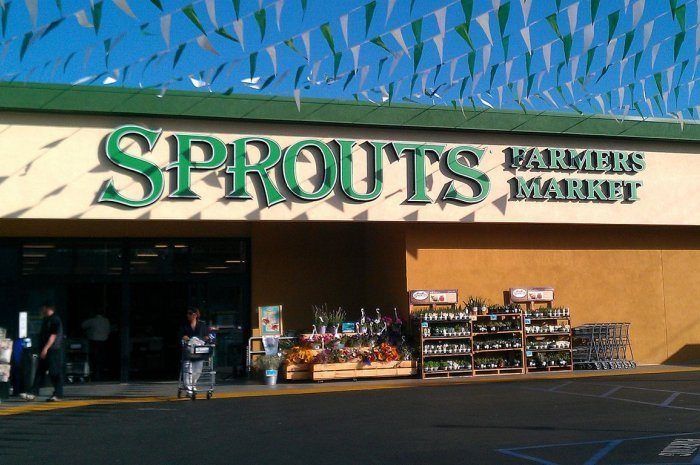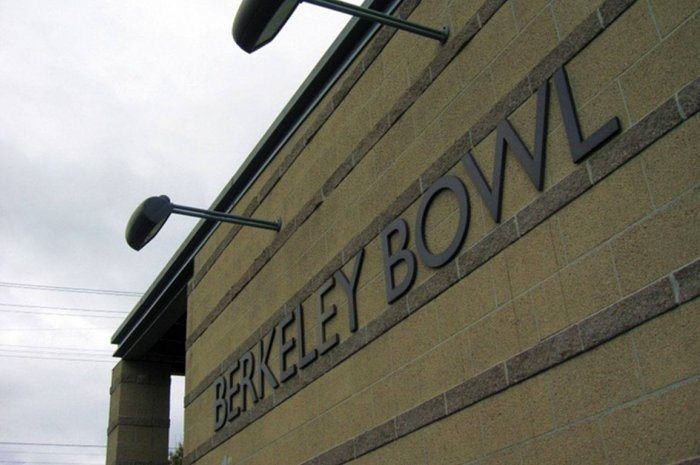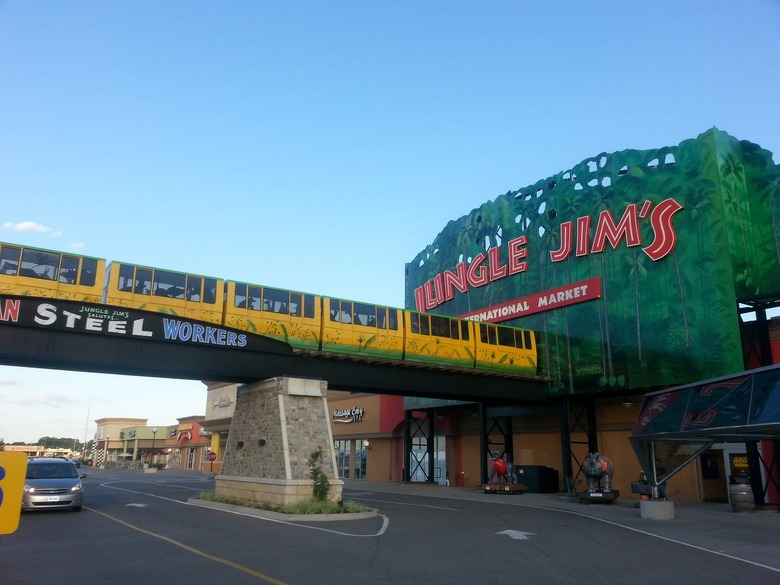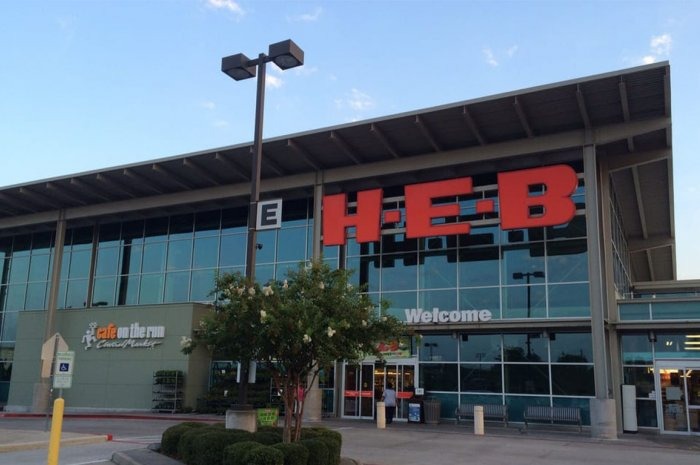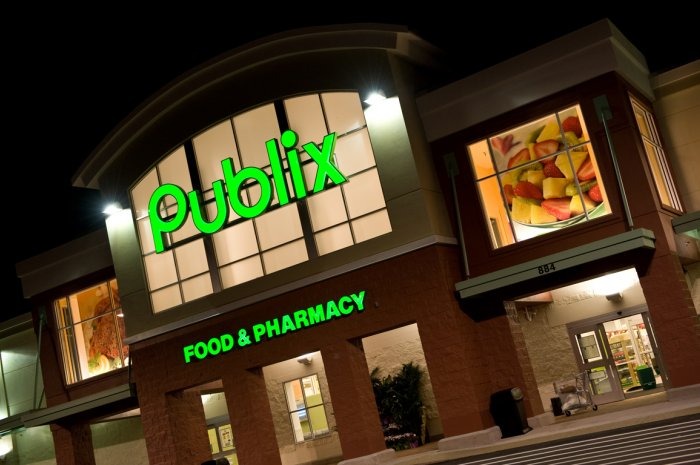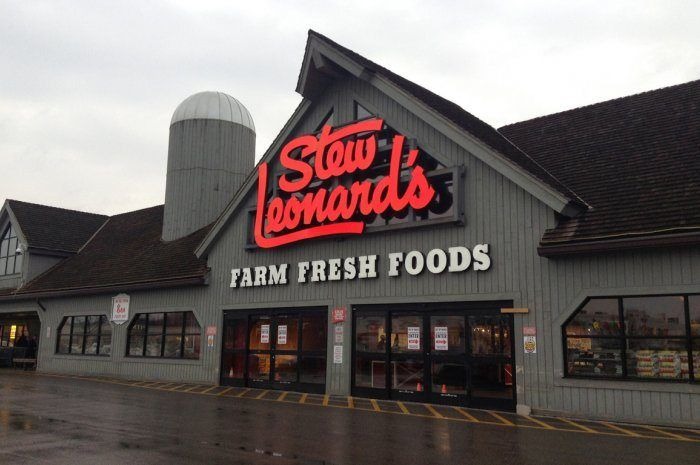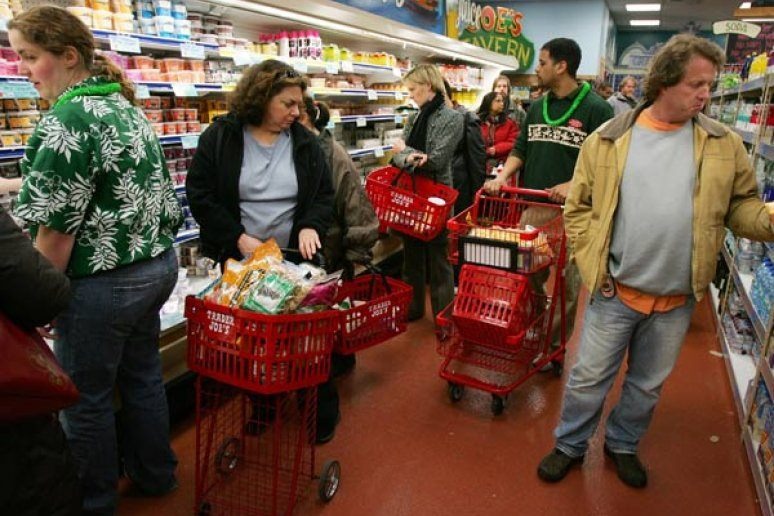America's Best Grocery Stores 2017 Slideshow
At the end of each year, people always are curious: What's on tap for the new year?
In terms of buying food, two 2017 trends are superseding the rest: technology and transparency.
Cooking — and therefore grocery shopping — is becoming more and more of an experience rather than a chore. This trend gave rise to meal kit delivery systems like Blue Apron, Purple Carrot, and Plated. Similarly, supermarket chain Giant rolled out its own version of meal kits in early 2016, and Campbell's, Tyson, and Hersey's brands are on the start-ups' heels, too. Online-based grocery shopping with delivery or curbside pickup is also gaining popularity. Consequently, we've begun to drift toward ultra-convenient, technology-driven grocery shopping experiences.
(This rise in technology-based grocery shopping also begs the question of whether we should place Amazon Fresh and Fresh Direct this list. Well, perhaps next year.)
In addition to the tech trend, consumers are continuing to seek out fresher, less processed products. To this point, grocery store expert John Karolefski reports that "nearly 30,000 grocery products will bear a new SmartLabel on packages by the end of 2017 to give consumers easy access to detailed information about what they are buying." Additionally, according to a study by Consumer Goods, 26 percent of millennials usually stay on the store perimeter — that is to say, millennial shoppers stay in the produce, meat, and dairy sections and only visit select center-store aisles during stock-up trips.
It is therefore increasingly important to consumers to shop at the right grocery store, one that not only fulfills their needs with well-labeled, quality produce but also provides a better, more convenient shopper experience. So what are the best, you ask? We've certainly got out favorites. Here's our list of America's best grocery stores to serve you in 2017.
#25 Kroger
Kroger, which brings in the most revenue of any supermarket chain in the U.S., is headquartered in Cincinnati and operates more than 2,700 supermarkets across the U.S. under several banners like Ralphs and King Soopers. In addition to carrying recognizable name brands, Kroger also carries local and regional products at competitive prices in each of its stores.
#24 WinCo Foods
WinCo Foods is an employee-owned grocery chain with 110 stores. The company, which was founded in 1967 in Boise by friends Ralph Ward and Bud Williams, quickly became known for its low prices and bare bones, warehouse-style appearance. The store changed its name from Waremart to WinCo in 1999 (except for one store that retains the original name), but maintains its reputation for low prices. Currently, WinCo Foods operates in Arizona, California, Idaho, Nevada, Oregon, Texas, Utah, and Washington State.
#23 Piggly Wiggly
Piggly Wiggly owns stores across 17 states in the Midwest and Southern U.S. Piggly Wiggly was also among the first stores to offer check-out counters and grocery carts in its stores. Today, the pioneering supermarket is consolidated under the C&S Wholesale Grocers banner, but independently operated stores continue to strive for "unparalleled customer service."
#22 Winn-Dixie
Winn-Dixie has 518 stores operating in Alabama, Florida, Georgia, Louisiana, and Mississippi. It has its own popular private label of soft drinks called Chek, which are produced in 20 different flavors. Last year, it launched a new initiative called "DownDown" that promised to not only lower prices but keep them down for at least six months. DownDown purportedly saved families about $1,000 in 2016.
#21 Giant Eagle
Giant Eagle was founded in 1918 in Pittsburgh. Today, the parent company operates more than 400 Giant Eagle stores in Pennsylvania, Ohio, West Virginia, and Maryland. Notably, it now offers "Curbside Express," allowing customers to purchase their products online and simply pick them up.
#20 Hy-Vee
This employee-owned, Midwestern grocery store is dedicated to providing its shoppers with excellent service and low prices. The stores' expanding Health Market departments are a testament to Hy-Vee's dedication to promoting healthy lifestyles. Its longtime slogan has been, "Where there's a helpful smile in every aisle." Hy-Vee also has the option to purchase certain items on its website and have them delivered.
#19 Stop & Shop
The grocery store that first opened in Somerville, Massachusetts, in 1914 has grown over the last 100 years to become one of the largest supermarket chains operating in southern New England. The chain strived to provide a more efficient and cost-effective shopping experience for customers, and it became one of the first supermarkets to adopt a self-checkout program in the early 2000s. Called SCAN IT!, the app allows customers to skip the checkout lines and pay/bag their groceries as they shop through the store.
#18 Safeway
As one of the largest supermarket chains in the U.S., and a subsidiary of Alberton's, Safeway operates thousands of stores in North America, even offering fueling stations and delivery at some of its locations. It produces its own product lines such as "O Organics," "Lucerne" dairy, and "Signature Select" for its upscale commodities.
#17 Market Basket
Market Basket — or Demoulas Market Basket — first opened in Lowell, Massachusetts, in 1917 and now operates 75 stores in Massachusetts, New Hampshire, and Maine. The family-owned company is known for its low prices, generous employee benefits, and good customer service.
#16 Balducci's
Balducci's is a specialty gourmet food retailer subsidiary of Kings Food Markets. The store — which caters toward high-end shoppers — uses the tagline, a "Food Lover's Market," and currently operates in Connecticut, Maryland, New York, and Virginia. The company also promises a rewards program that earns customers $10 for every $250 spent in the store.
#15 Wegmans
Wegmans is a regional grocery store chain operating in the Northeastern United States. It prides itself on offering local and responsibly grown produce from its own organic farm. Wegmans also carries its own affordable health food brand and artisanal products.
#14 Hannaford Brothers Company
Hannaford Brothers Company is one of oldest supermarkets on our list. Founded in 1883 in Portland, Maine, the company is currently headquartered in Scarborough, Maine, and has a dedicated commitment to responsibly sourcing from its local communities. Hannaford Brothers Company is lauded on Google Reviews for its "excellent selection of product, excellent service, and prices that can't be beat." Also worth mentioning is its Guiding Stars Program that helps to steer patrons toward better nutritional choices. Maine-iacs and other New England residents enjoy more than 180 stores in the region.
#13 The Fresh Market
The Fresh Market is a gourmet supermarket chain based out of Greensboro, North Carolina. The store operates 177 stores in the Southeast, Mid-Atlantic, and Northeastern United States, and is designed to evoke a European market feel with high-end and specialty products. Fresh Market Stores also offer online ordering.
#12 Giant Food
Giant Food Stores is known for a legacy of outstanding customer service in more than 200 GIANT stores. At the end of 2015, Giant launched its own meal kit line hoping to capitalize on consumer's infatuation with cooking with start-up brands like Plated and Blue Apron. And the verdict? Some bloggers appear to be fans, but you'll have to decide for yourself. Also, Giant Food instituted a mobile SCAN IT! app in its stores that allows customers to skip the checkout lines and pay/bag their grocery's as they shop through the store. (Sound familiar? Stop & Shop briefly acquired Giant Food from 2004 to 2011, and although they now operate independently, they still share many qualities — such as their logo.)
#11 Aldi
Attracting more than 32 million customers per month, the German-based global discount food retailer operates more than 1,000 stores in the U.S. Aldi carries both name brands and its own private label, which includes an organic food line. There is no MSG, artificial coloring, or hydrogenated oil in any of Aldi's products.
Interestingly, the Aldi brand is also keen on in-store efficiency. There are no pharmacies, banks, or any other "unnecessary amenities," all in an effort to keep the staff dedicated to and focused on the essentials. Aldi even requires customers to deposit a quarter in order to use a shopping cart, which is then returned to the customers when they return the cart to its place. This apparently "saves everyone money because our staff can focus on serving shoppers inside the store instead of collecting the carts from outside of the store," said Aldi spokeswoman Liz Ruggles.
#10 New Seasons Market
With 20 stores (and three more on the way) New Seasons Market provides a good mix of grocery classics and local, organic favorites to the Pacific Northwest communities. It is also big proponent of social responsibility: Not only is New Seasons committed to giving 10 percent of its profits back to the community and has donated more than $5 million to local charities, it is also committed to composting, recycling, and providing food to local food banks.
#9 Sprouts Farmers Market
Sprouts Farmers Markets operates more than 250 stores across the U.S. with a focus on fresh, healthy foods, as well as vitamins and supplements. The stores themselves tend to be smaller than typical supermarkets, making them an ideal fit for urban areas. Notably, the stores are specifically designed to display produce in crates on low shelves and let in copious amounts of natural light in an effort "to evoke the feel of an indoor farmer's market."
#8 Berkeley Bowl Marketplace
Berkeley Bowl Marketplace is an independently owned grocery store in Berkeley, California. Most notably, the store carries a vast range of fresh products and foods, both organic and conventional, tagged with reasonable prices. One Google reviewer said it best: "This is probably the best grocery store I have ever been to. The fruit section has a huge section of every kind of fruit you can think of...Good prices as well."
#6 Jungle Jim’s International Market
"Jungle Jim's International Market is more than a grocery store, it's a destination!" the store's website says. With more than 200,000 square feet of all the foodstuff you can imagine, Jungle Jim's International Market is like a grocery store theme park. The store is stocked with a vast variety of American and international products, plus a beer and wine section. As Nancy of Cincinnati said, "THIS is the stop all my out of town visitors insist on seeing. You can find wonders and treasures and oddities... You will be distracted by all the shiny things. PLUS, the selection of beer, wine, cheese and even butter is amazing. Oh, and an acre of produce...did I forget to mention that?"
#7 H-E-B
H-E-B is a privately held grocery store operating out of Texas with additional locations in Northern Mexico. The store produces its own line of reasonably priced quality products. Texans, in particular, are just wild about their H-E-B grocery stores. One reviewer in Austin said of the store, "HEB is the best grocery store in town, bar none. Which is probably why it's always so busy. Truthfully this is the only downside to shopping here. Weekends are especially bad with pretty long lines at every open register. They do the best they can, however, and the staff is always friendly, so I don't mind the wait. A byproduct of being great is that you are also popular."
#5 Publix
Publix has more than 1,000 stores across the Southern U.S. (769 stores in Florida alone), making it one of the largest regional grocery chains in the U.S. The chain is employee-owned and prides itself on exceptional customer service. Shoppers can special-order items not regularly carried, and the store has its own organic line called GreenWise.
#4 Stew Leonard's
With only five locations in New York and Connecticut, Stew Leonard's has made a name for itself because of its dedication to high-quality products. The store, which started as a small dairy store in 1969, continues to stock its shelves with items from its own farm. Dubbed the "Disneyland of Dairy Stores" by The New York Times, the atmosphere within its walls is all about the customer experience. In addition to a careful selection of quality grocery items, the store is also equipped with a petting zoo, animatronics, and costumed characters that entertain customers.
#3 Walmart Supercenters
Continuing the same theme of low, low prices at its regular Walmart stores, Walmart Supercenters carry all of the same products as a traditional supermarket in addition to electronics, housewares, and clothing. What makes Walmart so influential these days is its grocery pick-up service. Walmart is capitalizing are its vast network of locations and trying to make grocery shopping quick, easy, and convenient for shoppers — especially suburban shoppers who spend a lot of time in their cars. An article published in The Washington Post predicts curbside pick-up services will be more successful than delivery programs so much so that Amazon plans to open 2,000 grocery stores in the next 10 years.
#2 Trader Joe's
Many of the 460 Trader Joe's stores nationwide are concentrated in Southern California, where the store is headquartered. The unique chain model, which carries about 4,000 different products (80 percent of which sport the Trader Joe's house brand label), prides itself on providing shoppers with a wide variety of reasonably priced items.
#1 Whole Foods Markets
Whole Foods Market, self-described "America's Healthiest Store," is the new kid on the block compared to many of the larger, older supermarket chains in the country; however, since the store's founding in Austin in 1980, the specialty store dedicated to providing shoppers with organic and natural products has grown exponentially. Today, Whole Foods Market operates 435 stores across the country and has robust culinary and ready-to-eat food programs. The primary criticism of the store, though, is directly related to its high prices, and its often spurned with the name "Whole Paycheck."
Coming off a sales slump, Whole Foods now plans to expand its series of stores based off of its 365 bargain brand to attract shoppers who are looking to spend less but still receive excellent products. According to Bloomberg, there are currently three 365 stores on the West Coast with an additional 20 stores in development. With this lower prices strategy, in conjunction with the extremely high quality of foodstuffs, Whole Foods is our No. 1 grocery store for 2017.
